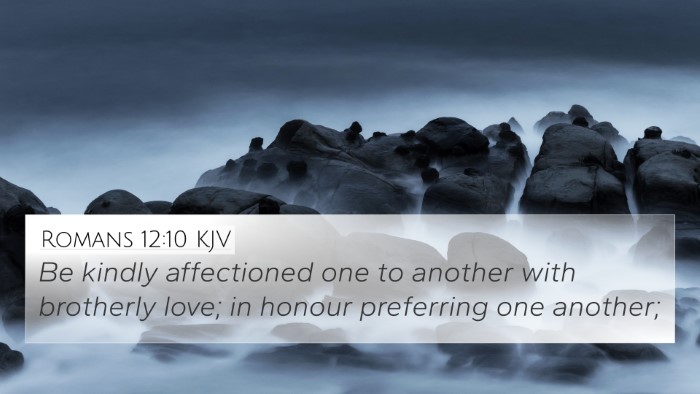Understanding 1 Corinthians 12:16
The verse, 1 Corinthians 12:16, states: "And if the ear shall say, Because I am not the eye, I am not of the body; is it therefore not of the body?" This verse emphasizes the importance of interconnectedness within the body of Christ, highlighting how each member has its own unique function and role. Let's delve deeper into the meaning and implications of this passage through insights from various public domain commentaries.
Verse Context and Meaning
In this chapter, the Apostle Paul addresses the diverse gifts bestowed upon believers within the Church, explaining that every part is necessary and plays a vital role in the functioning of the body. Matthew Henry elaborates on this by indicating that just as each body part has its function, so does each member of the Church have its particular spiritual gift, which contributes to the whole.
Albert Barnes adds to this interpretation by suggesting that the ear, in its lamentation about not being the eye, represents those who feel diminished or less valuable due to their differences. He emphasizes that every role is significant, and those who serve quietly, like the eye and ear, are essential for the body's direction and perception.
Adam Clarke further highlights the infrastructure of the Church, noting that no member should feel inferior or irrelevant due to the roles of others. The point Paul makes is that all functions, whether outwardly visible or not, contribute equally to the Church's growth and health.
Cross-References and Related Bible Verses
Understanding the connections between Bible verses enhances the comprehension of scriptural teachings. Several scriptures resonate with the idea found in 1 Corinthians 12:16:
- Romans 12:4-5 - Discusses the diverse functions of members within one body.
- Ephesians 4:16 - Expresses how each part of the body works together in unity to promote growth.
- 1 Peter 4:10 - Reminds believers to use their gifts for serving others as a demonstration of God’s varied grace.
- 2 Corinthians 12:12 - Paul describes the body being one yet having many members, reinforcing the unity in diversity theme.
- Colossians 3:15 - Emphasizes peace and unity among members of the body of Christ.
- John 15:5 - Christ speaks of Himself as the vine and believers as branches, depicting essential connections.
- Philippians 1:27 - Encourages Christians to stand firm in one spirit with one mind, working together for the faith.
Thematic Connections and Insights
The themes of unity and diversity are prevalent throughout the New Testament. The importance of each member is not just a matter of function but also of spiritual health. The Church, described as the body of Christ, signifies that Jesus is the head and sustains every part.
Matthew Henry posits that the manifestation of the Spirit, through various gifts, serves a common good and signifies collective efforts within the body. This internal support allows for collective growth and allows individuals to work harmoniously together.
Albert Barnes and Adam Clarke reinforce this by discussing the psychological aspect. Members should not envy the gifts of others as this creates division. Instead, they should rejoice in their unique contributions which together bind believers closer to Christ.
Practical Applications
Embracing the message of 1 Corinthians 12:16 involves several practical applications:
- Recognize Diversity - Appreciate the different spiritual gifts among believers.
- Cultivate Unity - Strive to foster a spirit of cooperation and love within the Church.
- Promote Encouragement - Encourage others to utilize their gifts without feelings of inferiority.
Tools for Study and Reflection
Utilizing tools for Bible cross-referencing can significantly enhance understanding. A Bible concordance helps in identifying where terms or themes appear throughout the Scriptures, allowing for deeper study on a specific verse like 1 Corinthians 12:16.
Furthermore, employing a Bible cross-reference guide can reveal connections and parallels that may otherwise be overlooked. Engaging in cross-referencing Bible study methods fosters a richer understanding and practical application of Biblical texts.
Conclusion
In conclusion, 1 Corinthians 12:16 serves as a powerful testament to the importance of each member within the Christian community. The insights derived from public domain commentaries ensure that as we seek to understand the Word, we grasp the interconnectedness fostered in the body of Christ.
By embracing our unique roles and nurturing unity, we reflect the heart of the Gospel and fulfill our calling in the broader tapestry of God's kingdom.






